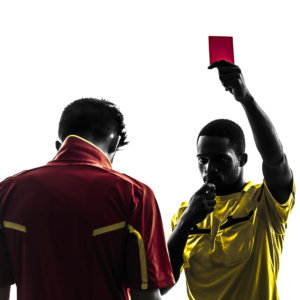Be a Good Sport With Social Media
Social business is all fun and games … until someone tweets about sports.
Topics
Social Business
As the world is riveted by the World Cup in Brazil this month, it’s no surprise that social media has been a key rallying point for soccer fans around the world to cheer, celebrate, and lament the fate of their favorite teams. Social media is ideally suited for these types of events.
What is surprising, however, is that two companies with very mature social media operations — both global airlines — managed to generate backlash against their brands.
In the first instance, Delta was attempting to show their support for Team USA in their upcoming match against Ghana. They represented the U.S. visually using an image of the Statue of Liberty, and Ghana with a picture of a giraffe — an unfortunate choice given that Ghana has no native giraffe population. Delta was critiqued for its ignorance of global destinations, with some even calling the tweet racist.
In the second instance, Netherlands-based KLM was celebrating the Dutch team’s emotional, come-from-behind victory over Mexico. Soon after the game, KLM tweeted “adios amigos” with a picture of an airport “Departure” sign that featured an image depicting an otherwise faceless man with a large mustache and a sombrero — a stereotype that understandably upset many Mexican fans, who called the tweet in poor taste as well as racist.
It is worth examining these missteps in further detail. If these two very seasoned and respected social media presences can err in this environment, something about it likely caught them off guard. As such, the World Cup can provide some important insights about the evolving world of social business, including important limitations of conventional wisdom.
Remember that you have customers supporting both sides. It’s likely no coincidence that both companies involved in these situations are airlines with global customer bases. That means they have loyal customers who will be supporting each team in any contest. It is understandable — and good public relations — for a company to express support for its home country or hometown team. But at the same time, the audience on social media is global, and companies should always expect supporters of the other team to overhear what you say.


Comment (1)
Titomelega